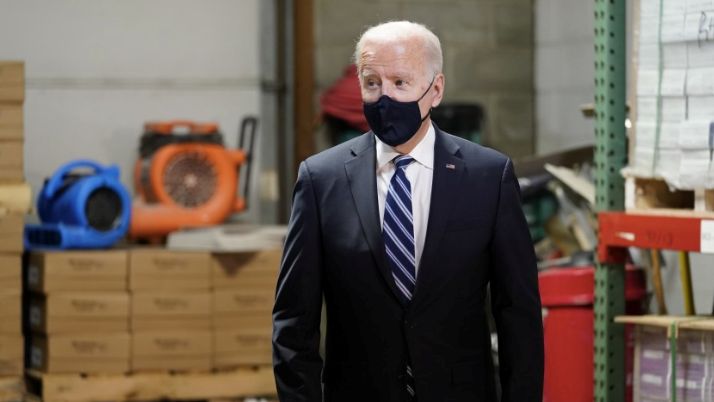President Joe Biden answered questions in a recent press conference, including those about the hotly contested filibuster rule.
Under the 100 member Senate rules, 60 votes are required to move bills to a vote, but Senate Republican leader Mitch McConnell promised to continue to use the rule to block significant pieces of Biden's plan.
What You Need To Know
- A filibuster used to mean a senator actually had to stand and speak, refusing to give up the floor and keeping a bill from coming to a vote
- In recent years, senators have waived that requirement; now, they can block a bill simply by threatening to speak
- History shows that Mitch McConnell and the GOP were able to weaponize the filibuster
- Experts said there are several ways to fix the filibuster without scrapping it like flipping the way the rule works and require 40 senators to show up to stop a bill instead of putting the burden on 60 to move it forward
As calls to end or reform the filibuster grow, Washington correspondent Doyle McManus joined Spectrum News 1 anchor Lisa McRee on L.A. Times Today to talk about it.
A filibuster used to mean a senator had to stand and speak, refusing to give up the floor and keeping a bill from coming to a vote. But in recent years, senators have waived that requirement; now, they can block a bill simply by threatening to speak.
"The original idea of the filibuster was to protect the rights of the minority. But mostly to slow the Senate down and to make it, so you had to craft a bill that had 60 people behind it or that at least you had 60 people thinking it was ready to go to the floor. So that if you had just a majority of 50 plus one, you could not push everything through instantly. That was the original idea," McManus said.
In the 1970s, Democrats had a majority in the Senate, and they thought the filibuster was slowing things down, McManus said.
"They changed the rules and said a senator could simply notify the desk that he or she planned to filibuster; that he or she was going to demand 60 votes to move any bill forward. And simply by sending in a piece of paper, that changed the whole ballots of power and made it, so everything needed 60 votes to move forward, and it was much easier to block things and turn the Senate into gridlock."
History shows that McConnell and the GOP were able to weaponize the filibuster and created a legislative graveyard.
"To be fair, it was used on both sides. Harry Reid used it when he was the Democratic leader and when they were in the minority too. But it was Mitch McConnell who perfected it and who used it constantly during the Obama years to stop anything from getting through the Senate," McManus added.
McManus said that rather than scrapping the filibuster, it would be better to reform it.
"Instead of requiring 60 senators to move a bill forward — which puts the burden on 60 to show up and take a vote — flip it around; require 40 senators to stop a bill. That would actually put the burden on a minority and will make it harder for them to act, and that might fix the problem too."
At the recent news conference, a reporter asked President Biden if he considered the filibuster a "relic" of the Jim Crow era, and he said, "yes."
"He was referring to the way the filibuster was used in what its historic heyday was, which was the first half of the 20th century. Southern segregationists used it to block civil rights legislation and voting rights. That is a talking point for Democrats now. Republicans in the Senate are now talking about using it against the voting rights legislation from the House. When that reporter followed up and asked President Biden why he won't scrap the filibuster, President Biden said he wanted to deal with the abuses first. The idea is that if you want to make a compromise happen, then figure out something that is going to make a compromise happen. And, Joe Biden in that news conference seemed to indicate that he was interested in those ideas," McManus said.
Click the arrow above to watch the full interview.



